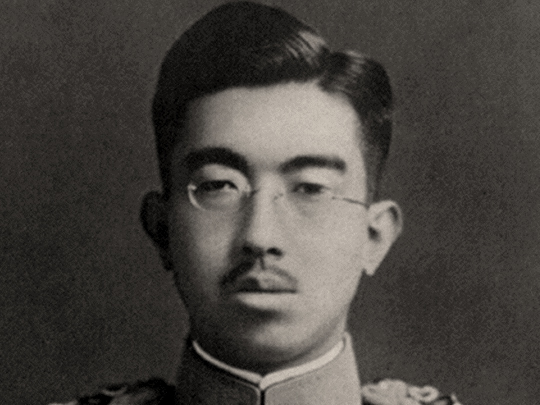Wikimedia Commons / CC-BY-SA-3.0 / GFDL
Hirohito
(Japanese Emperor)
29 April 1901 – 7 January 1989 (Aged 87)
Hirohito was the 124th Emperor of Japan, from 1926 until his death, making him the longest-reigning in their history.
During World War II, the level of the role he played in Japan’s operations remains a point of controversy.
Following the atomic bombing of Nagasaki and Hiroshima, Hirohito broke his imperial silence to announce Japan’s unconditional surrender.
U.S. General MacArthur, in the face of calls for Hirohito to be tried as a war criminal, made a deal with the emperor.
Hirohito had to repudiate his supposed divinity and would become a democratic leader of the country.
Hirohito became an important player in rebuilding Japan’s image on the international stage for the remainder of his life. He died of cancer at the age of 87.
Nicolae Ceausescu
(Romanian President)
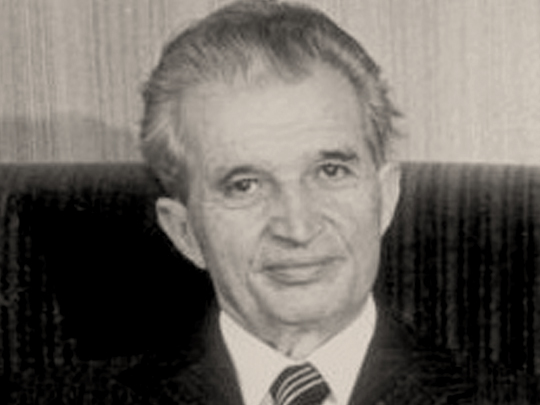
26 January 1918 – 25 December 1989 (Aged 71)
Ceausescu was the president of Romania from 1974 until he was overthrown during the Romanian Revolution in his final days.
He would be the last Communist leader of the country.
During his time in charge of the country, Ceausescu’s Communist policies led to widespread food shortages, ultimately leading to the unrest that brought about the collapse of his regime.
The authoritarian regime created a secret police, responsible for mass surveillance, while also suppressing the media.
The economic mismanagement of the country led to huge debt and rationing of food, water, and electricity.
As the Romanian Revolution reached Bucharest, Ceausescu and his wife, Elena, fled the presidential palace by helicopter. However, the armed forces captured them shortly afterward.
On Christmas Day, 1989, a show trial found the Ceausescus found guilty of genocide, among other things, before they were executed by firing squad.
Read more about the Romanian Revolution here.
Irving Berlin
(Songwriter)
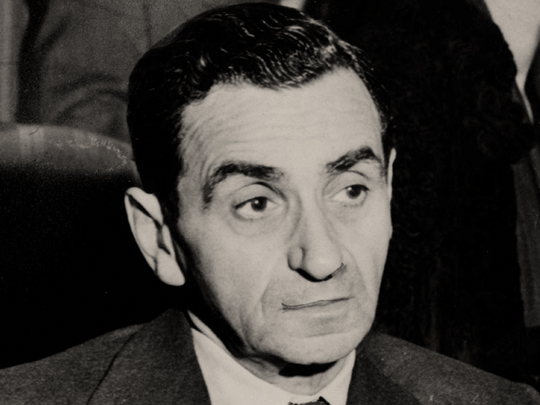
11 May 1888 – 22 September 1989 (Aged 101)
Berlin was a Russian-born American composer, regarded as one of the greatest lyricists of all time. Among his most famous songs is ‘White Christmas’, ‘God Bless America’, and ‘Happy Holiday’.
A prolific songwriter, Berlin was responsible for over 1,500 songs, including the score for 15 films and 20 Broadway shows, such as Annie Get Your Gun, Holiday Inn, Easter Parade, and There’s No Business Like Show Business.
Among his many accolades, Berlin was awarded a Grammy Lifetime Achievement Award in 1968 and was presented with the U.S. Presidential Medal of Freedom in 1977 by U.S. President Gerald Ford.
Berlin died in his sleep at the grand old age of 101.
After his death, The New York Times wrote that the life of this Russian immigrant was a “classic rags-to-riches story that he never forgot could have happened only in America.”
William B. Shockley
(Physicist)
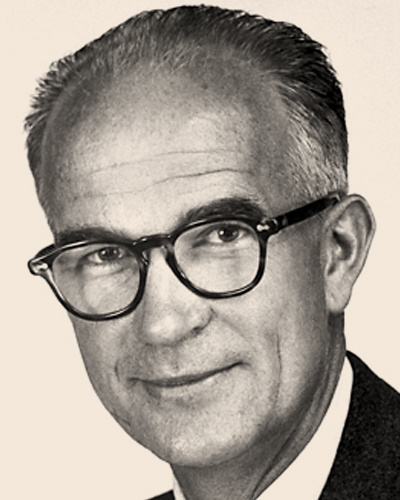
13 February 1910 – 12 August 1989 (Aged 79)
Shockley was an English-born American physicist whose experiments led to the invention of the transistor, widely seen as one of the greatest technological developments in history.
In recognition of his work, Shockley was awarded the 1956 Nobel Prize in Physics, along with fellow researchers John Bardeen and Walter Brattain.
Shockley went on to become a Professor of Engineering at Stanford University.
He was, however, to court controversy in the 1960s with speeches and articles claiming Caucasians were intellectually superior to those of African descent.
By the time of his death from prostate cancer at the age of 79, Shockley had become estranged from nearly all of his friends and family as a result of his inflammatory ideas.
Ferdinand Marcos
(Philippines Dictator)
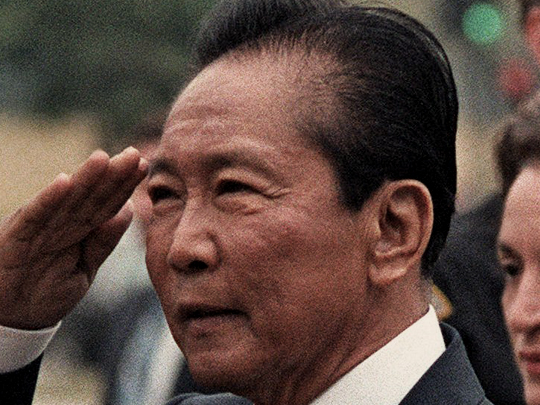
11 September 1917 – 28 September 1989 (Aged 72)
Marcos was the dictatorial president of the Philippines from 1966 to 1986, known for his corrupt and heavy-handed rule of the country which led to economic turmoil and an eventual uprising of the people.
Having been elected president in 1966, Marcos declared martial law on September 23, 1972, and ruled the country as a dictatorship for the next 9 years.
During this period, Marcos censored the media, changed the constitution, and used violence to suppress his political opposition, Muslims, and the general population. His abuses led to the People Power Revolution in February 1986.
In the face of a potential military between pro- and anti-Marcos troops, Marcos fled to Hawaii on the advice of U.S. President Ronald Reagan.
He died of a heart attack while in exile in Honolulu, Hawaii, at the age of 72.
There has been evidence uncovered that Marcos, his family, and associates may have been responsible for the siphoning off of billions of dollars from the Philippine economy.
Andrei Sakharov
(Physicist)
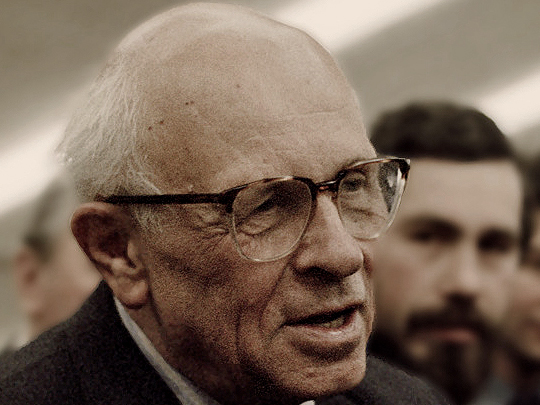
21 May 1921 – 14 December 1989 (Aged 68)
Sakharov was one of the Soviet Union’s leading physicists in developing their nuclear and thermonuclear weapons program.
However, in his work developing the hydrogen bomb, he grew concerned and became a vocal critic about the danger of nuclear weapons. He also became a strong advocate of civil liberties within the Union.
Sakharov’s efforts saw him awarded the 1975 Nobel Peace Prize.
In January 1980, Sakharov was arrested in Moscow and sent into internal exile, where he was kept under surveillance until December 1986.
During this time, Sakharov went on hunger strike on more than one occasion in an effort to see his wife allowed to travel abroad for medical treatment. He was hospitalized and force-fed on each occasion.
In 1985, the EU parliament established the Sakharov Prize, to be awarded each year to people dedicated to human rights and freedoms.
Sakharov died from heart failure at the age of 68.
Ahmadou Ahidjo
(Cameroon President)
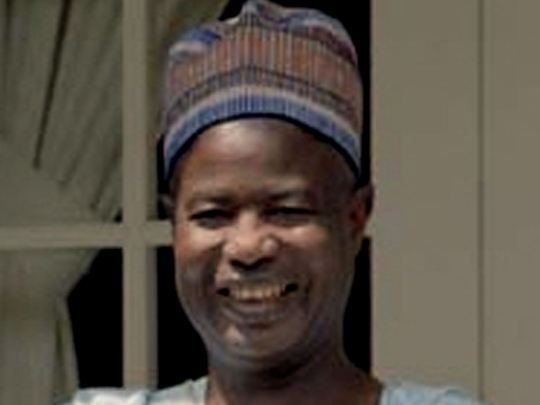
24 August 1924 – 30 November 1989 (Aged 65)
Ahidjo was the first-ever president of Cameroon, leading the country from 1960 until 1982.
Having formed his own party, The Cameroonian Union, in 1958, Ahidjo was elected president and achieved independence for French Cameroun.
During his time as president, Ahidjo was able to persuade the south of British Cameroon to join his country and unify them.
His leadership was at times seen as dictatorial, ultimately brought a level of stability and relative prosperity to the country.
In 1982, Ahidjo resigned from the presidency primarily on health grounds. Over the following years, Ahidjo and his successor, Paul Biya, had a falling out and led to Ahidjo going into exile in France.
Ahidjo spent the rest of his life between France and Senegal, with much of his legacy tarnished or often erased. He died of a heart attack at the age of 65.
Despite attempts by his family, his remains have not yet been allowed to be repatriated to Cameroon for burial.
